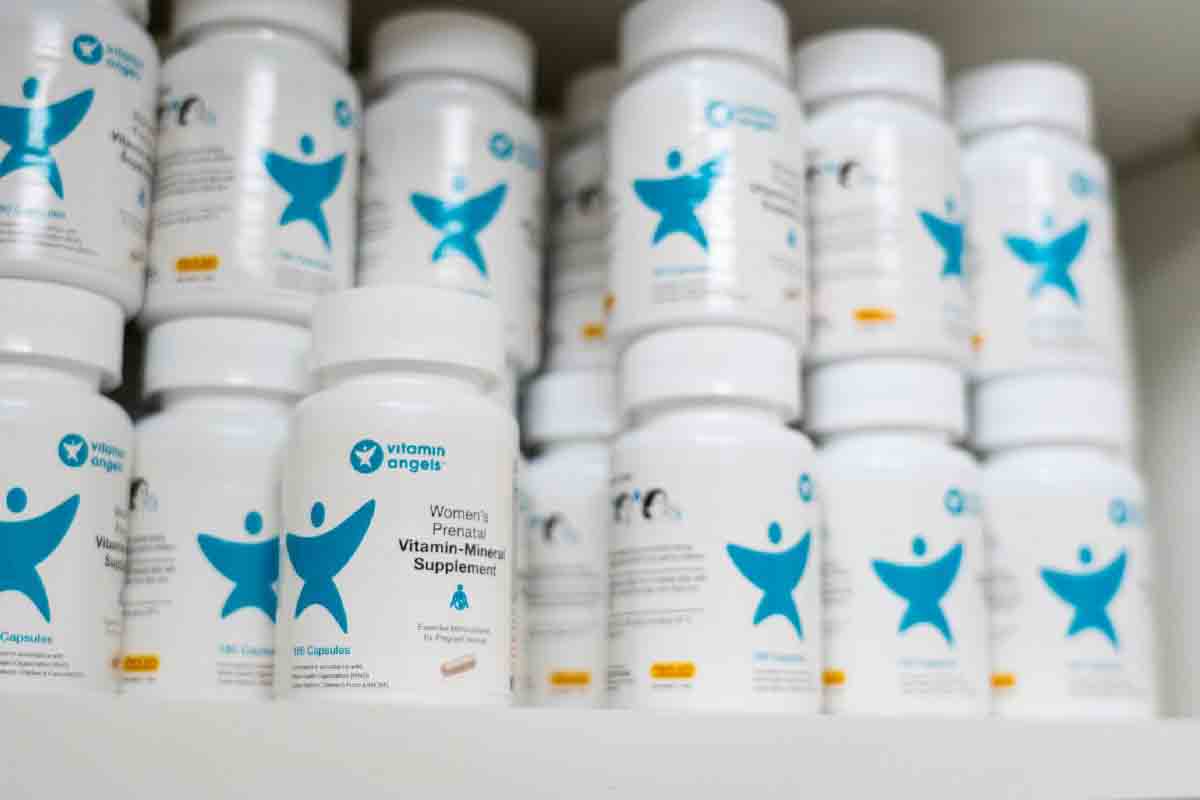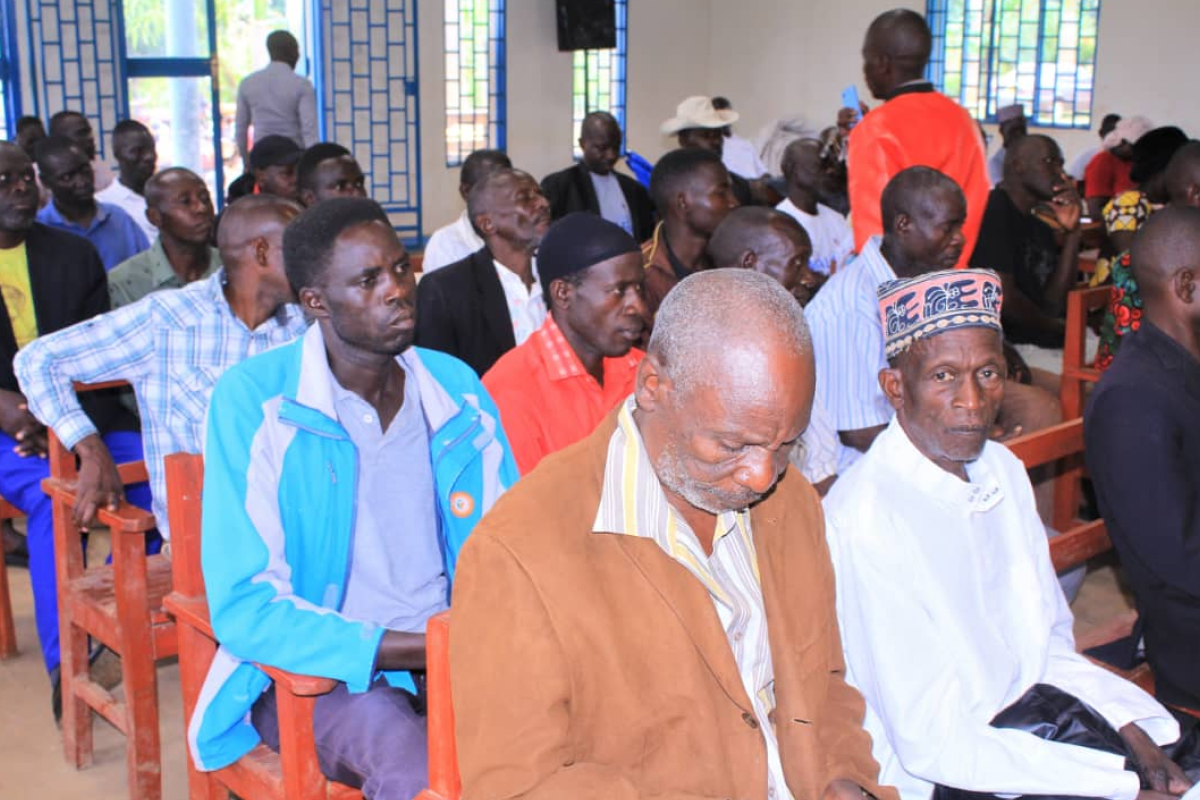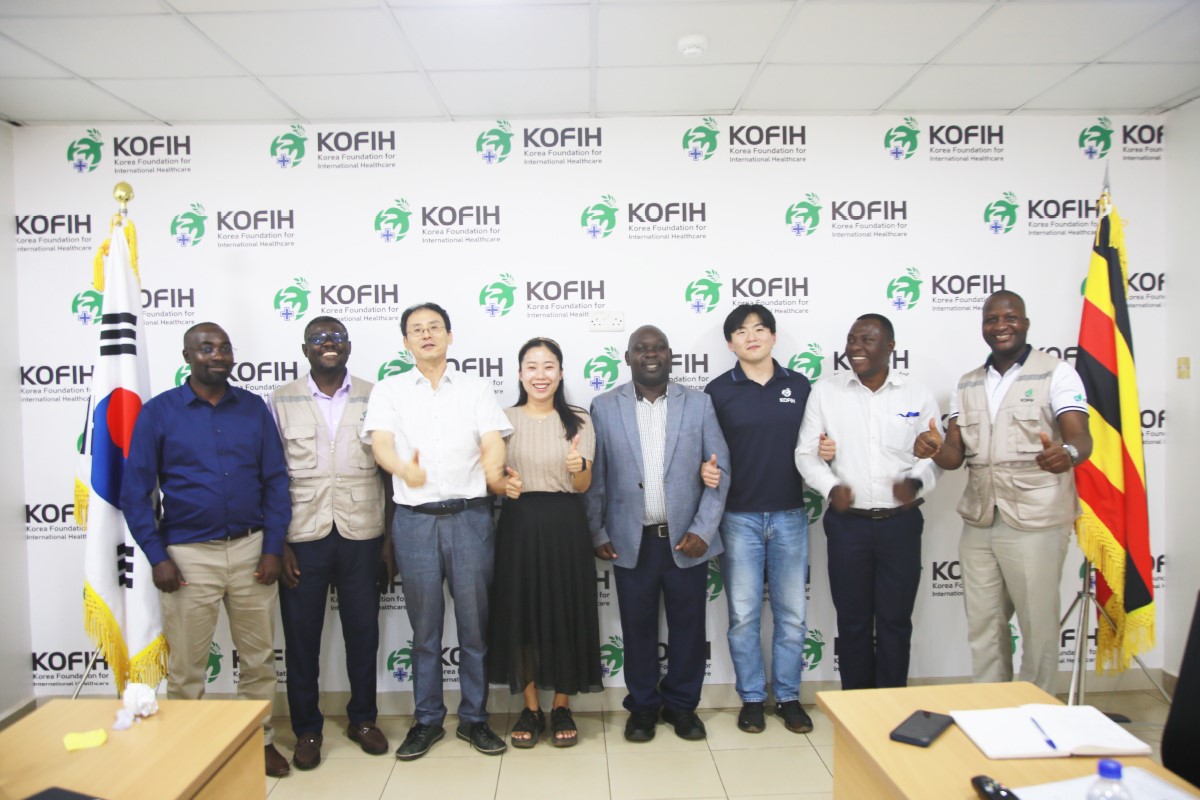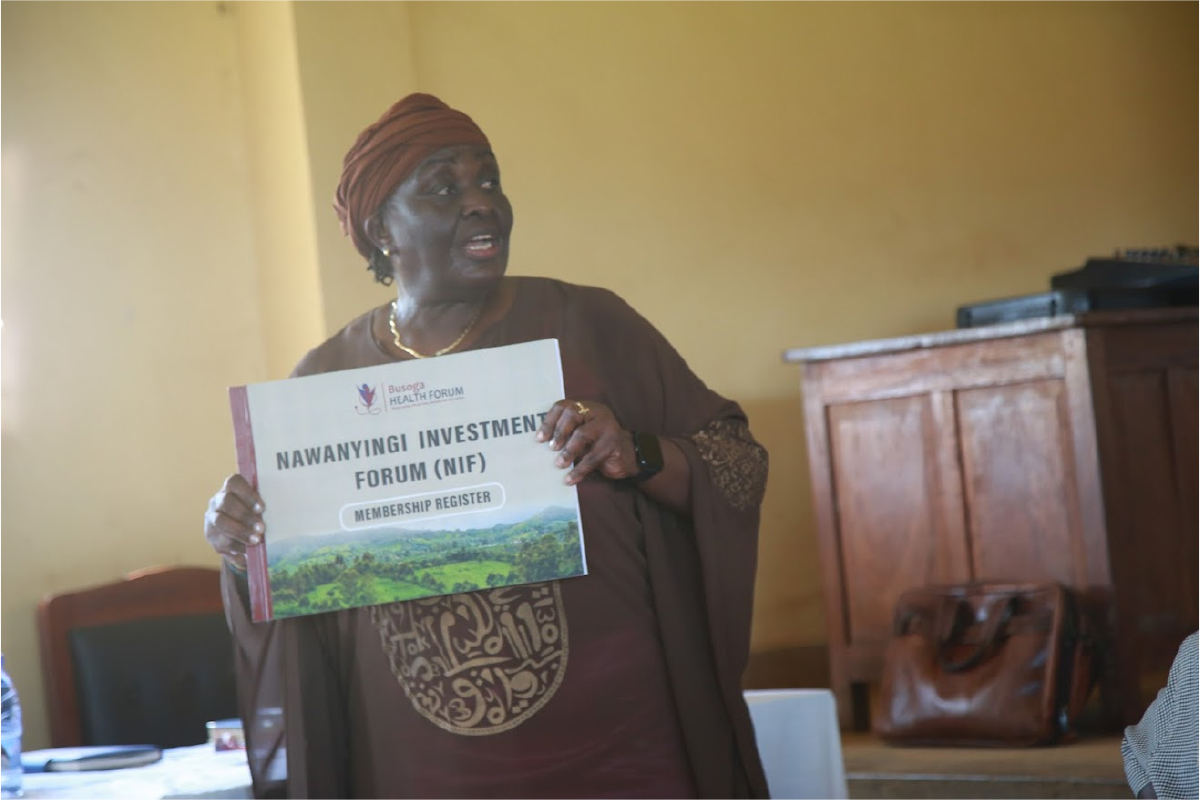Published By BHF | December 5, 2022
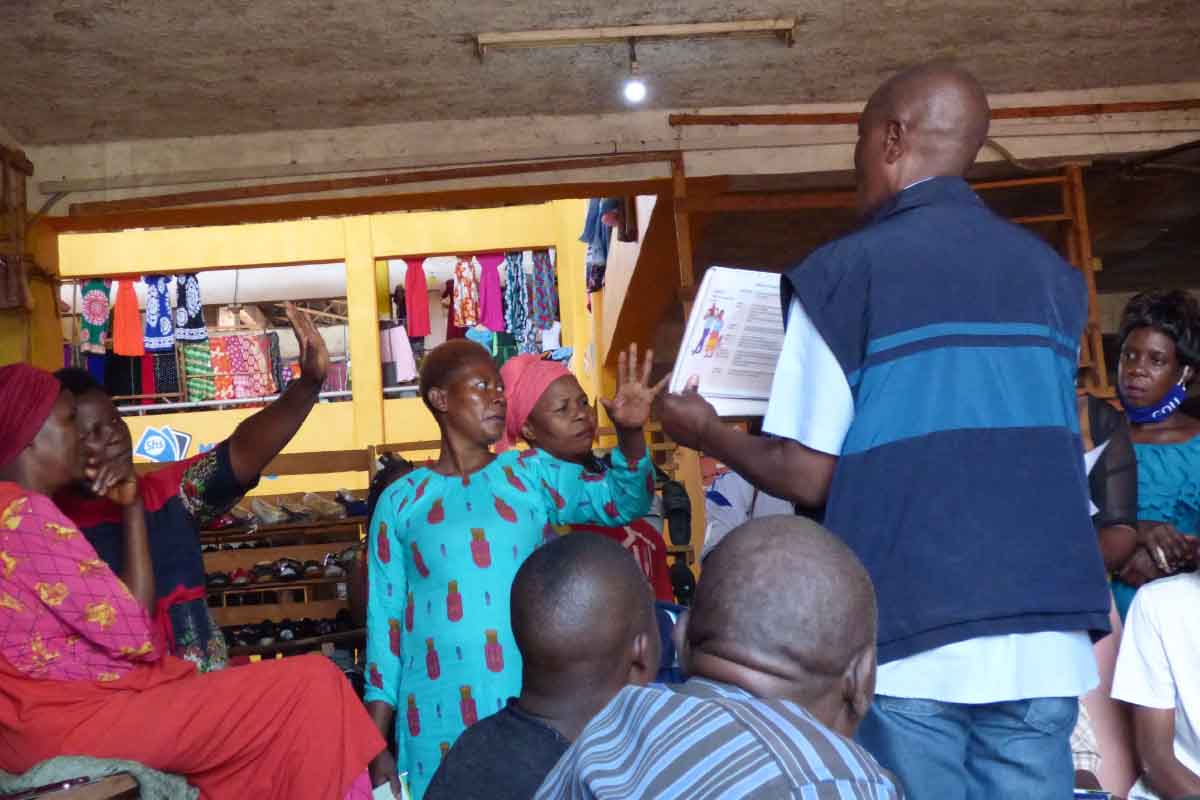
By Tatumwa Desmond Benjamin
Most people know of family planning but they do not know what it is all about. For example, Panadol is a painkiller, but we have had some interactions with people who confidently admit to using it as a contraception method. Others have herbalist concoctions they are using, and more wrong information is being shared from one person to another.
The World Health Organization defines family planning (FP) as planning that allows individuals and couples to anticipate and attain their desired number of children and the spacing and timing of their births. It is achieved through the use of contraceptive methods and the treatment of involuntary infertility.
In one of our interactions with community members in Jinja Central Market, a businessman inquired about how family planning could help him at the moment. The businessman has older children but also has a young wife. He says it would be unfair to limit her from having her desirable number of children despite his need to stop having more children concerning the financial burden he bears.
To share the right information and reduce the unmet need for family planning in Iganga municipality and Jinja City, Busoga Health Forum (BHF) together with Makerere University School of Public Health (MakSPH) is implementing a project dubbed ‘Urban Thrive Project’ (UTP) that is currently in the second year of implementation.
The three-year project, funded by the John Templeton Foundation aims to increase coverage and uptake of Voluntary Family Planning (VFP) in Jinja city and Iganga Municipality. This is being done through the adaption of high-impact practices in family planning.
According to Dr. Felix Kizito, the project coordinator at Busoga Health forum, the project also aims to contribute to the improved performance of urban health systems in the study sites with regard to VFP.
Being a research implementation project, UTP focuses on; developing and implementing a tailored package of high-impact interventions for emerging urban settings in Uganda using participatory approaches, improving the understanding of family planning and decision-making capacity for healthy reproductive behaviors, and strengthening effective delivery and management of family planning services. The project revolves around the Human-Centered Design (HCD) approach, which, focuses on understanding the needs, capabilities, and challenges of users and ensures stakeholder engagement in the development of solutions and design of programs through co-creation, inclusion, and transparency.
Urban Thrive Project Interventions activities
- Co-design workshop
The co-design workshop focused on engaging urban and district authorities, family planning public and private providers, community representatives (Village Health Teams (VHTs), family planning champions, priority user groups such as (youth and men), cultural and religious leaders, local and national family planning partners, as well as Ministry of Health Officials from the reproductive health division. In the co-design workshop, verification of the need for the different FP interventions, validation of interventions that fit the local settings and target population groups, and identification of any potential implementation barriers was also done. It is from this that the ‘Amazima’ campaign about family planning was adopted. Participants suggested that the community should be given nothing but the truth about contraceptive methods.
- Training and supervision of gender and age-sensitive participatory community groups.
The project team is working with locally generated social groups to deliver targeted information on VFP to address key knowledge gaps, norms, and other concerns that deter contraception use and promote healthy reproductive behaviors through group discussions and information sharing.
The group sessions are led by the community facilitators and Village Health Teams trained by BHF and MakSPH. Communities in places such as slums and landing sites are being engaged through drama shows by local drama troupes.
- Support and enhance the implementation of media-based Social and Behavioral Change and the use of digital technologies.
The project is facilitating the airing of tailored radio messages through popular or preferred radio stations in the region, i.e. Busoga One FM and Eye FM in Jinja and Iganga respectively. The project is utilizing WhatsApp and Short Message Services (SMS) to disseminate general FP information to mobile phone subscribers. Selected messages are being disseminated to different subpopulations/individuals that were identified during the formative study and also mobilized and consented to through the Village Health Teams. Our approach addresses some of the challenges posed by urban inequalities and the diversity of urban populations, needs, and expectations: to increase exposure to FP information
- Strengthen provider-initiated VFP and counseling.
Family planning providers play a key role in educating and sensitizing users about VFP. We are supporting the promotion of the integration of VFP counseling in key service points or special clinics at health facilities. This has been done through training service providers and regularly reminding providers during support supervision. The lack of trained providers remains a challenge in the provision of FP services, however, this affects the scope of methods provided and ultimately voluntary choice. 118 health workers were trained from both Jinja and Iganga- 60 from each implementation site.[JNS1]
- Strengthen the availability of FP commodities and services
Inadequate supplies of VFP commodities and resources continue to affect progress in reducing the unmet need for FP and women’s ability to exercise voluntary choice of modern contraception. From the recent quarterly review meeting held early October with the stakeholders, the FP focal persons from the implementation areas noted:
“The weekly surveillance reports do not give us an idea of how much stock is available. We have staggered, and we are generally not doing well. We are dispensing commodities without documenting the users and vice versa.”
BHF trained 18 commodity managers [JNS2] from Jinja city and Iganga municipality. The aim was to instill recommended procurement and ordering skills to avoid stock-outs in the health facilities.
- Strengthen community-based provision of VFP services
BHF and MakSPH are supporting the community-based provision of VFP services by; strengthening the capacity of selected community health workers (CHWs) to correctly assess clients for FP, make appropriate method recommendations, disseminate gender-sensitive or age-appropriate information on FP or reproductive health, refer and follow-up of clients, as well as identifying and managing side effects among other basic FP services. The CHWs are providing the Self Injection method, Sayana Press, and Depo Provera. They are also able to link community members to the nearest health workers and health facilities.
Radio talk shows, community group meetings, drama shows, Short Message Service (SMS), and WhatsApp groups are all being used to reach different heterogenous and homogeneous audiences. Quarterly and continuous support supervision of Health workers, VHTs, and commodity managers is ongoing.
The project also conducts quarterly review meetings with stakeholders mainly; the urban authorities to update them on the progress and also get feedback from them concerning the implementation process. Jinja City and Iganga Municipality Leaders have applauded the Busoga Health forum for such a timely project.
“I thank the organization for the voluntary initiative to uphold the health of our region Busoga. It takes a strong mind to realize that we have problems in Busoga,” said Mr. Alton Kasolo, Jinja City Mayor.
The findings from the project’s baseline assessment in the two sites show that the overall modern method contraceptive prevalence rate is at 47% with Iganga and Jinja at 44% and 48% respectively. The overall unmet need is at 30% with Iganga at 32% and Jinja at 30%.

